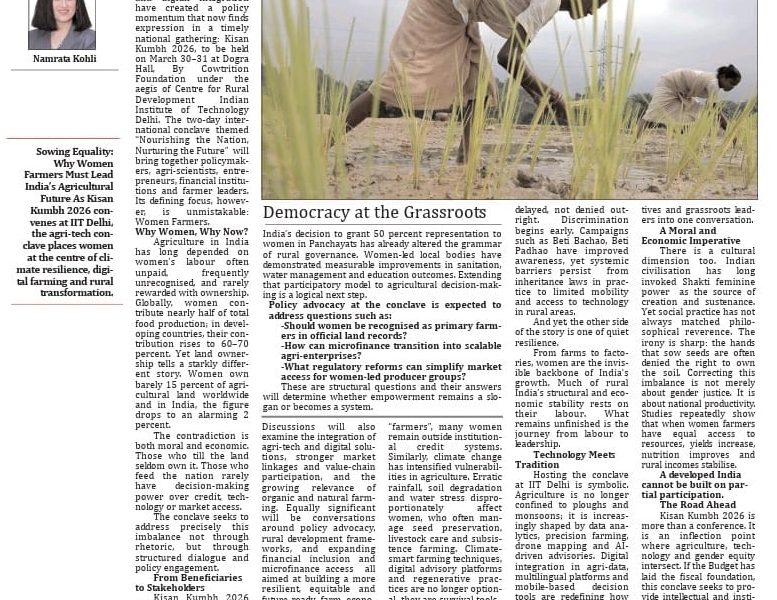Did you know that in India, only 20-25% percent women are part of the workforce, as against the global average of 47%. I am talking about the “Opt-Out” phenomenon which is more prevalent in India than anywhere in the world, and the whole psychology behind it.
Have you ever wondered why some highly educated and capable women are staying back home and choosing to “opt out” of their careers – temporarily in the beginning and ending up even permanently terminating their careers? In fact many of these women intend to “comeback” to their careers but reentering can be very daunting and difficult because often they have lost time, confidence, even relevance to re-enter the rat race. They feel they are still relevant at least to the family and hold onto that dearly and fiercely.
Whether you believe it or not, managing a home is a full-time job. It’s like running a small company, where there are things to be macro managed and micro managed. Career, of course, and nurturing your profession is yet another full time job. Add to that raising children and there are three full time jobs which one person cannot afford to perform, at least consistently or for very long. However much the world may glorify women as the best examples of multi-tasking, the truth is we only end up juggling things and eventually that can take a toll on our health.
This is especially common in cases where workplace demands are incompatible with family life. Take the case of media where mediamoms are forced to take a “break” as no school is compatible with a mother’s office hours being from 2 pm to 2 am, and neither does any family function like that.
I find brilliant women having to sabotage their careers simply because they got married… and that is the marriage penalty you have to pay. The one coming soon after is the motherhood penalty .. in the name of these two, women are robbed of their economic independence. So what exactly is the marriage penalty? It refers to the economic disadvantages or financial burdens that women often face after getting married, especially compared to their male counterparts or their unmarried selves. This “penalty” manifests in various ways. Married women often reduce their hours or leave the workforce altogether to take on caregiving responsibilities, which affects career advancement and income.

Research shows that mothers typically experience a significant wage gap compared to their childless counterparts. And that is the Motherhood Penalty. There are career interruptions leading to fewer opportunities for raises and promotions. There is subtle discrimination at the workplace. Employers may view mothers as liabilities rather than assets for their organisation, and also feel they are less capable of handling demanding roles. They don’t want to be saddled with an employee coming rushing with family woes from time to time.
Most often than not, the caregiving responsibilities fall disproportionately on women. Socio-cultural norms emphasize traditional gender roles and discourage women from working outside the home.

So what is the answer to these conventions? Either men and women shoulder the burden equally but such a cultural transformation may take several decades. What is doable is to institutionalize the idea of work-from-home and create more flexi work options for women. To mitigate this imbalance and crisis, what can be done is create a system of flexi work for women so that they are able to continue with their work.
I suggest that the HR departments of every important company should sit down and create a standard “flexi-employee policy” where they keep women on company rolls, or retainership model and ensure there is some constant flow or work and money is there in the corporate world for women.
It’s not that women at home are working 24 by 7. They may not be able to step out from 9 am to 5 pm sometimes, because of certain familial responsibilities. That doesn’t mean they can’t work. And with tools of technology and smart phones at their disposal, women can be deployed for remote working, with offsite meetings a few times a week. After all, a career is something that gives you confidence and imbues your life with meaning and moolah- all of which is important to survive and thrive in this world.




